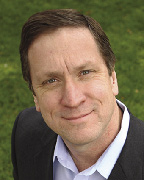As school doors across the nation open for the new school year, the U.S. Green Building Council (USGBC) is set to launch year three of its National Green Schools Campaign, a broad-based initiative involving policy makers, teachers, parents and students who want to substantially improve the indoor environmental quality of America's schools, along with making them more energy efficient, water efficient and resource efficient.
On September 8, USGBC and 11 educational and environmental groups kicked off the Coalition for Green Schools at a meeting featuring remarks by Martha Kanter, Under Secretary for the U.S. Department of Education, about the multiple, but critically important pathways for greening America's schools. This first ever alliance between the nation's leading educational and environmental organizations brings together the country's strongest advocates for healthy, safe and sustainable K-12 learning environments prized for their contribution to higher test scores among students, higher retention among teachers and lower absenteeism rates for both groups because of improved indoor air quality.
On the heels of the Coalition event, Adobe Systems announced its support of the Mayors' Alliance for Green Schools by funding renovation and repair projects for three schools identified by the Alliance in three U.S. cities including Boston, Chicago and San Francisco. The Alliance, initiated in October 2008 by mayor Martin Diaz of Miami and Mayor Greg Nickels of Seattle in partnership with USGBC, is a coalition of mayors across the country looking to promote the benefits of green schools in their communities.
Later in September, USGBC will host its 2nd Annual Congressional Advocacy Day, bringing more than 100 advocates from USGBC Chapters to Washington, to call on their Congressional Representatives about the importance of green schools, and to thank them for their support of the stimulus funding that is helping make the renovation and repair of many schools possible. USGBC has also begun year two of its 50 for 50 Initiative. 16 have been established so far, with another dozen in formative stages.
Fully 20% of the nation's population spends their days in a K-12 school, and too many of those schools are substandard by any measure. Green schools cost less money to operate and use substantially less energy and water. Those savings add up and put money back into the classroom. On average, green schools save $100,000 per year, which could pay for two new teachers, buy 100 new computers, or purchase 5,000 new textbooks.
"There is no more important work we have before us than making sure that every one of our children attends a school where the learning environment works for them, not against them" said Rick Fedrizzi, president and CEO, USGBC.
Fedrizzi noted that there had been significant progress in the past 12 months, including federal, state and local initiatives that have has passed, including the 21st Century Green High-Performing Public Schools Facilities Act, funding for green school construction and renovation as part of the American Recovery and Reinvestment Act, and the "Making green Schools a Reality" Resolution.
USGBC's LEED for Schools green building certification has helped grow the stock of green schools nationwide, and more than one school a day registers with LEED on average. There are currently more than 185 LEED certified schools and nearly 1,706 more have registered their intent to seek certification. "However, given that there are some 126,000 schools in America, we clearly have more to do," Fedrizzi said. "We anticipate that this effort will continue to attract policy makers, parents, student, teachers, and the many groups who see this as a concrete way to care for our children's future, and save taxpayer dollars in improved long-term operations of these facilities."
For more information about LEED for Schools and the National Green Schools Campaign and a list of available resources to schools, policymakers, and teachers, visit www.buildgreenschools.org
Coalition for Green Schools Executive Committee
* American Architectural Foundation
* American Association of School Administrators
* American Federation of Teachers
* Association of School Business Officials International
* Council of Educational Facility Planners International
* Healthy Schools Campaign
* National Clearinghouse for Educational Facilities
* National Education Association
* National Education Association - Health Information Network
* National PTA
* National School Boards Association
* U.S. Green Building Council
With a membership comprising 20,000+ member companies and organizations, 78 local chapters and affiliates and nearly 132,000 LEED Credentialed Professionals, the U.S. Green Building Council is the driving force of an industry that is projected to increase to $60 billion by 2010. The U.S. Green Building Council's LEED green building certification system is the leading certification program for the design, construction and operation of green buildings. There are more than 25,000 commercial projects participating in the LEED green building certification system, comprising more than 7 billion square feet of construction space in all 50 states and 114 countries. For more information, visit www.usgbc.org.
Tags:
U.S. Green Building Council works to ignite change across the country with National Green Schools Campaign
September 22, 2009 - Green Buildings







